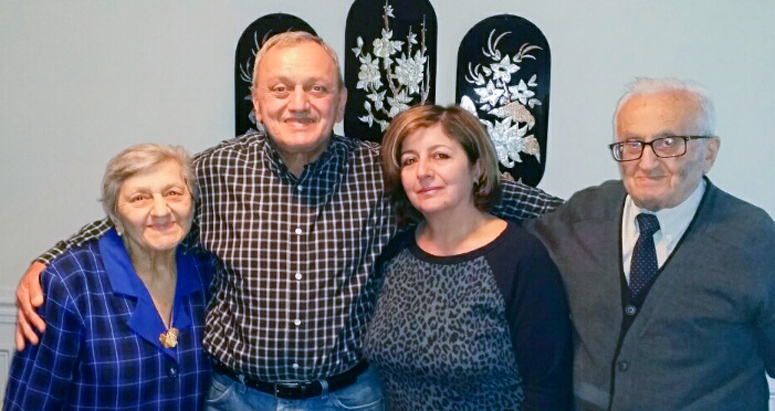
GREENVILLE—Ramiz Askar remembers the day in 2006 that changed his family’s life forever.
Mr. Askar, an engineer, was in his home in Baghdad, Iraq, with his wife and daughter on a Friday, his customary day off.
“All of a sudden I saw a crowd of people outside the house wearing khaki uniforms,” Mr. Askar recalled during a recent interview. “They entered my house, broke down the door, and came in. The men had machine guns and other weapons. They took me down in front of my wife and daughter and they put a gun to my head.”
That day was the culmination of two years of increasing harassment they experienced because they were Christian. He was not harmed, but he saw the writing on the wall: The Askars would have to leave their home country.
They are just one of thousands of Christian families who have since fled Iraq because of persecution and violence. Some took refuge in other Middle Eastern countries such as Jordan, others in Europe, and still more, like the Askars, eventually made it to the United States.
Mr. Askar, his wife Ikram, their three children, and his parents ended up in Greenville. The Upstate city in South Carolina is worlds away from the lives they left behind in Baghdad, but they have found one thing they no longer had in Iraq: safety.
Before the U.S. invasion and the subsequent war in 2003, Mr. Askar said people of different faiths lived peacefully together in Iraq, even under the shadow of Saddam Hussein’s dictatorship.
 “People didn’t ask if you were Muslim, Christian, that sort of thing,” he said. “What counted is if you belonged to or supported the right political party.”
“People didn’t ask if you were Muslim, Christian, that sort of thing,” he said. “What counted is if you belonged to or supported the right political party.”
In the wake of Hussein’s fall, however, religious rifts emerged as the country struggled to form a new government. He said some Muslim extremists who were in the majority in their part of Baghdad started to make life difficult for Christians and other religious minorities.
“I had worked for the government before and now worked for an American company, and they started threatening me, calling me an unbeliever and saying I was working for unbelievers,” Mr. Askar said.
His daughter, Riam, who was then in middle school, was harassed for not wearing a traditional headscarf like many Muslim women. There were other daily slights, insults and threats.
Then the men with guns came to the house. After that, Mr. Askar and his family packed up only what they could easily move themselves and fled to Jordan, where they stayed for two years. In 2008, he learned about a program that helped Iraqis who had worked for the United States to move here, so he applied to bring his family. Initially, he was told he could bring only his wife and daughter, but he would not leave Jordan without his grown sons and his parents.
Mrs. Askar had an uncle living in Greenville who agreed to sponsor the family, and they all arrived on Dec. 10, 2008.
A Lutheran organization helped the family find a house and settle in. They also found a new spiritual home at St. Rafka Maronite Church in Greer, which has many members of Middle Eastern descent, including other Iraqis. All of the Askars were eventually able to become U.S. citizens.
Mr. Askar acknowledges adjusting to life here has not always been easy, but the family is thankful for the help they’ve received, the opportunity to worship as they choose and the simple fact they are safe.
The job market has been one of the challenges. He has worked as a translator for health care systems in Greenville because at age 61, he is unable to find any jobs in engineering. Mrs. Askar works in an alterations shop run by her uncle. One son, also an engineer, couldn’t find work near the family and eventually took a job overseas. Their daughter is studying to be a pharmacist. Mr. Askar’s other son and his parents still live in the Greenville area.
Adjusting to the more laid-back Southern way of life in Greenville has also been challenging after living so many years in big, bustling cities in the Middle East. But that, he said, is a small concern compared to the situation he left behind in Iraq.
Now, one of Mr. Askar’s greatest wishes is that his fellow Americans don’t turn a blind eye to the stories of Christian persecution they see in the news media.
“Christians are suffering over there and most people don’t know about it,” he said. “It is suffering like Christ went through. I want people to know what they are going through and I wish people would do what they can to help these persecuted Christians to come here. You can save their lives by doing that.”

